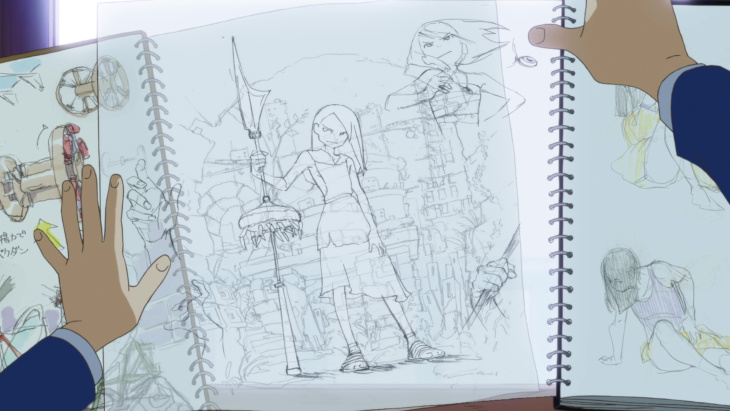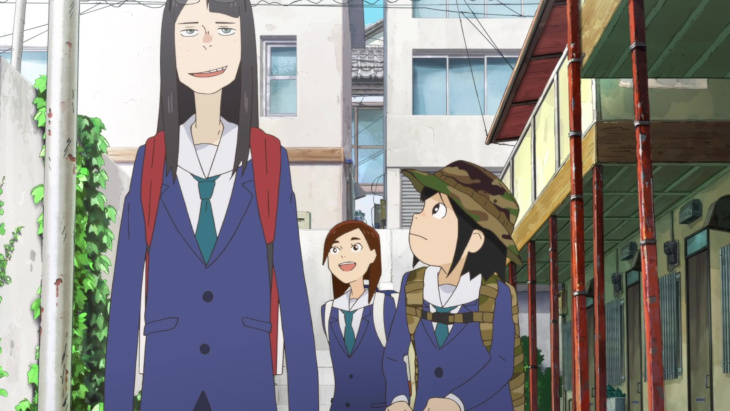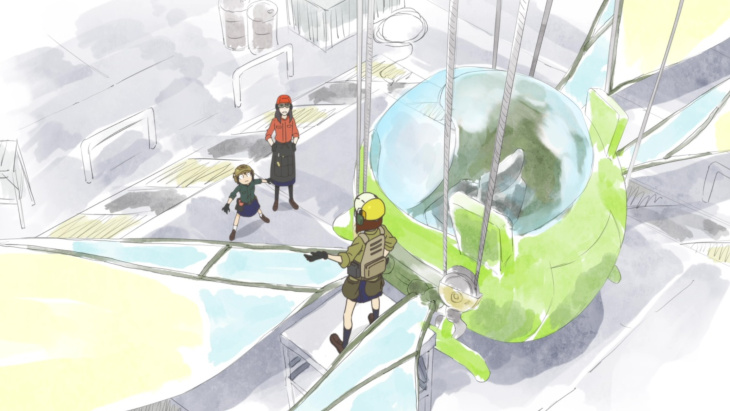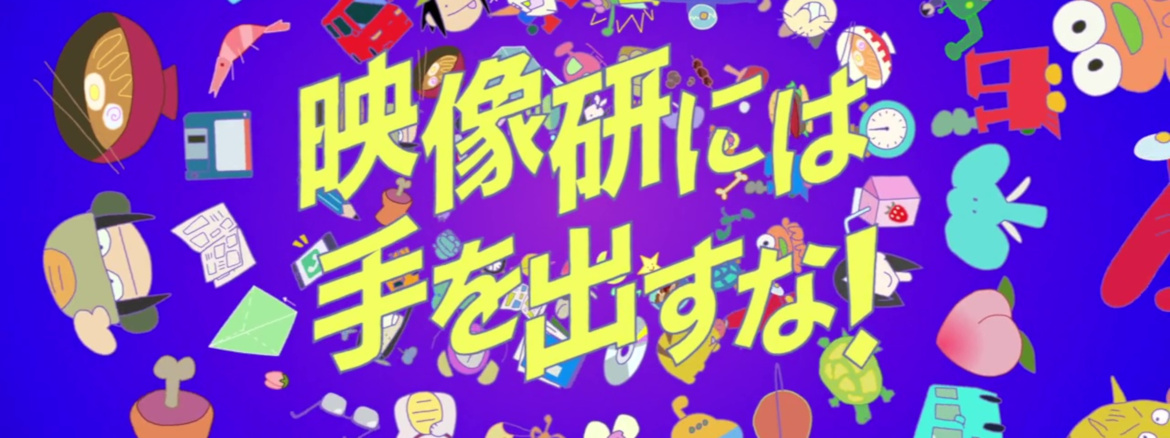
It wasn’t something I could do myself, but the big, epic world of adventure that I wanted to experience… was right in front of me.
Eizouken looks like it will probably be a weird show. Then again, I knew that going in. Saying a Masaaki Yuasa series will be weird is not unlike proclaiming that the new isekai series will involve someone being transported to another world. It is a basic factor that comes with the territory. Then again, I can’t really proclaim to be an expert on Yuasa’s work. While I love Ping Pong: The Animation, my only other exposure to his work has been the first episode of Devilman Crybaby and that episode of Adventure Time he directed. Still, if there is one aspect that links all of those titles, it’s Yuasa’s willingness to get experimental with the visual conventions of animation, and it looks like Eizouken will prove to be the continuation of that particular trend. So what is Eizouken about? Fortunately, the answer to that question is straightforward, even if the execution is unconventional. Eizouken is about the nature of creativity and its expression, specifically through the lens of creating animation. In some ways, this feels like the inverse of Ping Pong, as that series examined talent’s capability to both isolate and bring people together, but spent much of its time on the former over the latter. At least with its opening episode, Eizouken comes across as much more optimistic about its core topic, and I’m eager to see where it goes with this premise.

The series centers around 3 high school girls, Midori Asakusa, Sayaka Kanamori, and Tsubame Mizusaki, as they endeavor to express their creativity through animation. Midori is a skilled concept artist who loves analyzing animation, but has limited social skills and struggles with her desire to engage with others. Sayaka is Midori’s friend who only has a passing interest in the topic of anime, but begrudgingly supports her. The last of the girls is Tsubame, a model and the daughter of a wealthy family who clashes with her parents over her desire to become an animator. The first episode mainly covers Midori and Sayaka’s initial encounters with Tsubame and their recognition of their common interests. In that regard, Sayaka can come across as something of an outlier, given her limited passion for anime, but her down to earth, straightforward approach is instrumental in bringing the girls together and directing their creative talents. Frankly, I like every facet of the group, and I’m eager to see how the show progresses with their group dynamics.

The production for this series is handled by Yuasa’s personal production company, Science Saru, and it shows. Right off the bat, I can say that this show doesn’t look quite like any other anime I’ve seen. With peculiar boxy character designs, beautiful and quirky locations, and eccentric animation, this is a Yuasa series through and through, and I consider this to be a good thing. It’s only appropriate that a show about creativity should in turn be brimming with that very trait, and it certainly has that going for it. In terms of criticisms, I only have a few and they’re pretty mild. I’m not a huge fan of the opening, though it may grow on me. The animation for it is cluttered and kinetic by design, and reminds me of Mob Psycho’s opening in a few ways, though that’s hardly a negative comparison to be drawing. The girls’ first creative idea session also gets zany in a manner that didn’t click with me at that moment. However, I’d be lying if I said that, on reflection, I don’t relate to the act of letting your imagination run wild which is depicted there. I think the imagery of three people sharing a single creative vision might be what threw me off. Flights of fancy aren’t usually group trips. Still, I’m completely on board with seeing where Eizouken ni wa Te wo Dasu na!’s visually stunning brain storms plan on taking me, and this is definitely going on my shortlist of anime to follow through the season.
Before I wrap up, a few Notes and Nitpicks:
- I’m traditionally pretty bad at keeping track of anime production staff, but Yuasa has something of that ‘auteur’ quality with his work that keeps him from being easily forgotten, for better or for worse depending on whom you ask.
- If this turns out as well as I hope, this may prove to be one of those titles than an anime fan should use to try and sell others on the medium. Not only do the characters attempt to make that argument directly, but said argument is further supported on multiple levels by the show’s production and motifs.
- I’m not familiar with the source material by Sumito Owara, but I may need to look into it once this season ends. The manga is still ongoing, so I’m curious if the anime will create its own ending or leave things open for later seasons.
- Between Eizouken ni wa Te wo Dasu na!’s characters and themes, I find myself thinking back on Jellyfish Princess quite a bit. I should revisit that manga.




Add comment